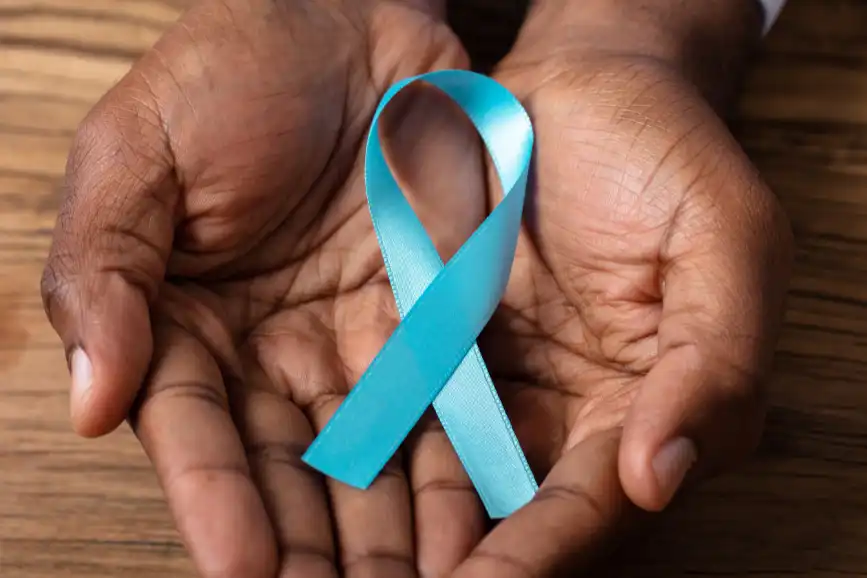January is designated as Cervical Health Awareness Month to raise awareness of the human papillomavirus (HPV) and cervical cancer. Cervical cancer is one of the leading causes of cancer death among American women. Below are some quick facts on cervical health as well as useful safety advice.
What is Human Papillomavirus (HPV)?
HPV is the most frequent viral infection of the reproductive system. With more than 200 distinct strains, it is also the most prevalent sexually transmitted virus. In most cases, HPV is not harmful and is self-resolving with no symptoms. However, in rare cases, it can become serious.
What is the link between HPV and cervical cancer?
HPV is associated with almost 99% of occurrences of cervical cancer. Although HPV is often non-lethal, self-curing, and does not result in health issues, the virus can, on rare occasions, persist and result in aberrant cervical cell development. If the aberrant cells are not removed, they may eventually develop into malignant cells. Cervical cancer prevention has long been centered on HPV prevention.
Fast facts about cervical cancer:
Here are some quick facts on HPV and cervical cancer:
- It is the fourth most prevalent cancer among women.
- About 13,000 American women are diagnosed with cervical cancer each year.
- Black women have the highest mortality rate from cervical cancer, although Hispanic women have the highest incidence of the disease.
- Cervical cancer affects about 13,000 women annually in the United States.
- Cervical cancer is six times more likely to affect women with HIV than those who are HIV-negative.
- Over 90% of HPV infections are benign and self-curing.
- Cervical cancer is curable if detected and treated early.
- HPV is present in 99% of cervical cancer cases.
- Cervical cancer can be prevented with the HPV vaccination, pre-cancer screening, and therapy.
What are the signs and symptoms of cervical cancer?
Cervical cancer symptoms and signs are comparable to those of other female health disorders. Therefore, it is recommended that you speak with your gynecologist if you exhibit any of the following symptoms:
- frequent and/or painful urination
- abnormal vaginal discharge
- heavy menstrual flow
- pelvic pain that is unrelated to menstruation
- abnormal vaginal bleeding between menstrual cycles, following sexual contact, or in postmenopausal women
How can I protect myself against HPV and cervical cancer?
The best strategy to prevent cervical cancer and HPV is to receive an HPV vaccine and undergo routine screening for HPV and cervical cancer. Examples of HPV vaccines include Cervarix (Recombinant HPV Bivalent Vaccine), Gardasil (Recombinant HPV Quadrivalent Vaccine), and Gardasil 9 (Recombinant HPV Nonavalent Vaccine).
Who should get the HPV vaccine?
By the age of 11, both boys and girls should have had an HPV vaccine. However, it can be administered from the ages of 9 to 26. You should get the HPV vaccine before sexual activity and far in advance of any HPV exposure.
How can I be screened for HPV and cervical cancer?
There are different screening tests for women, including pap smear and HPV DNA tests (HPV test). An HPV test is like a pap test but checks for the presence of the HPV virus rather than cancer cells.
How often should I get an HPV or pap test?
Your testing frequency will vary depending on your age, medical history, and other risk factors. Every three years, sexually active women and women over the age of 21 should get a pap smear. Additionally, every three to five years, women between the ages of 30 and 65 may receive both a pap and an HPV test.
Does a positive test for HPV mean I have or will develop cervical cancer?
No, a positive HPV test does not mean you will always develop cervical cancer. It merely confirms that you carry a viral strain that is strongly associated with cervical cancer.
How can I lower my risk of getting HPV?
Always use a condom during sex. It can significantly reduce your risk of contracting HPV.
Are there medications to treat HPV?
There are no medications for the treatment of HPV. You may develop health problems associated with HPV, such as genital warts, which can be treated with drugs.
Is cervical cancer treatable?
Yes, cervical cancer is treatable if diagnosed and treated early. Depending on the disease’s stage, your doctor may use one of the following treatment options:
- Surgery: The most typical surgical approach for treating early-stage cervical cancer is the removal of the tumor or infected tissue.
- Radiation: Radiation may be administered either before or after surgery to either reduce the size of the tumor before removal or to eradicate any cancer cells that may still be present in the area.
- Chemotherapy: Cancer cells may be destroyed using chemotherapy and targeted radiation if cervical cancer has spread. Medications used for chemotherapy include Alymsys (Bevacizumab), bleomycin Sulfate, hycamtin (Topotecan Hydrochloride), and carboplatin.
- Immunotherapy: In some stages of cervical cancer, you may have to take medication that encourages your immune system to find and eliminate cancer cells. An example is Keytruda (Pembrolizumab).
How can I participate in Cervical Health Awareness Month?
During Cervical Health Awareness Month, you can make a difference by educating friends and family on cervical health, prevention tips, and the importance of regular screening. You can also post your support on social media using the hashtag #CervicalHealthMonth or attend an event.

















